Your cart is empty
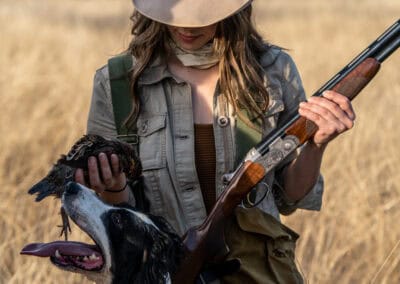

Micah Fink is a family man, horse packer, Navy Seal, Ironman, woodsman and hunter. He founded Heroes and Horses, which has helped transform the lives of scores of American veterans through horseback wilderness experiences deep in Montana’s backcountry (as profiled in YETI’s film, One Eighty Out). This interview was originally published in Modern Huntsman Volume One.
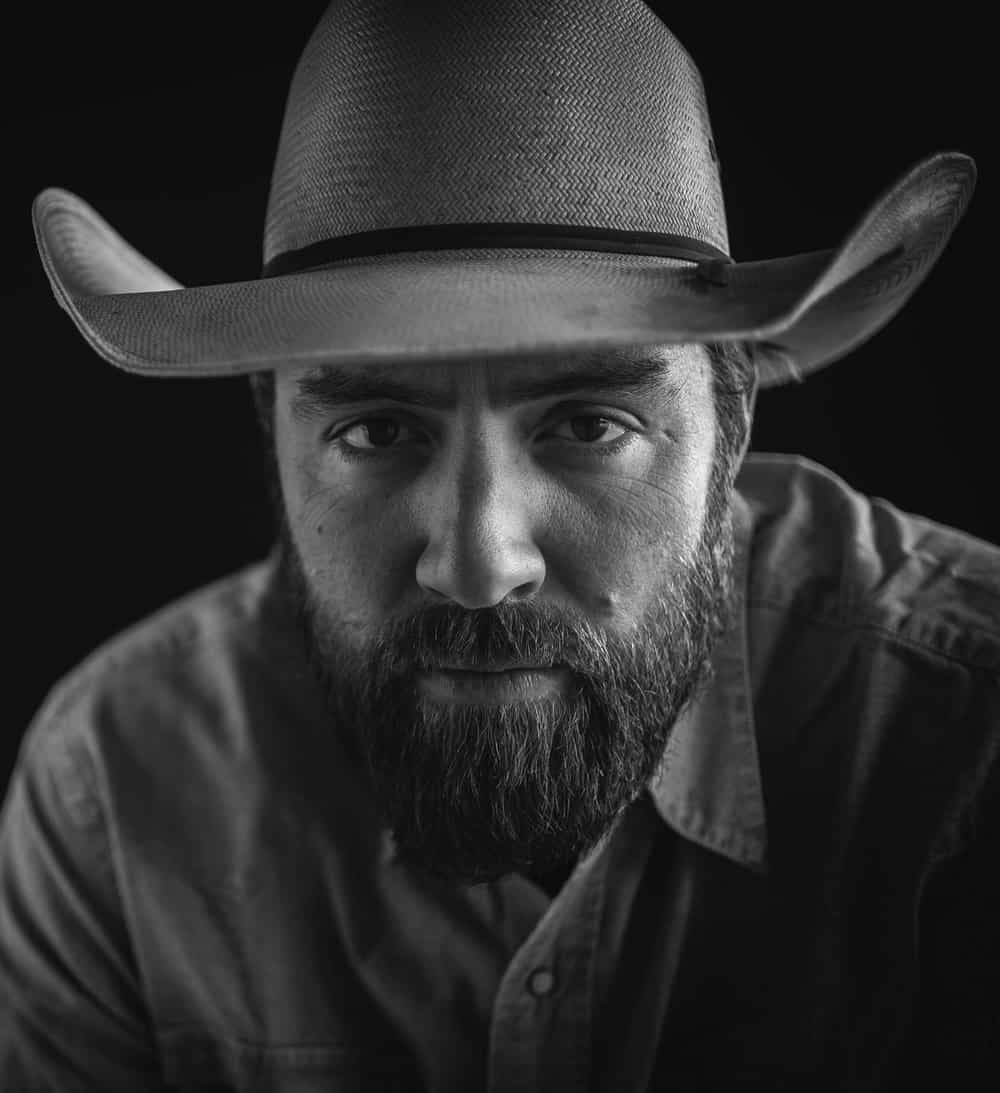
To start off, tell us a bit more about you, your background and connection to the outdoors.
Micah: My name is Micah Fink, and I grew up in a rural town in upstate New York. My connection to nature and the outdoors started at a young age – 10 years old, to be exact – when I met an older man named Mike Carano. Mike was a combat veteran and Army Ranger, and he decided to take me under his wing and introduce me to the world of hunting. He became like a second father to me, and later in life I would come to deeply appreciate and understand his way of living. He was a lifelong fisherman, hunter, conservationist, and woodsman who passed his knowledge on to me daily. One of the fondest memories I have is shooting my first deer with him in 1991. I would end up spending a large chunk of my childhood and young adult life with Mike in the mountains – watching and learning. He held an incredible wealth of knowledge in that brain of his, and he would come to be one of my closest friends. He was the person that gave me my first gun and bow, and to this day I think of him often.
Life events would later take me on a much different path than that of working on a dairy farm in upstate New York. The most significant of those events? Standing at the World Trade Center on September 11th. That day would become the catalyst of a series of events that would eventually lead me to joining the military and becoming a different kind of “hunter” — a Navy SEAL. During this time in my life, I was always by the ocean, so I naturally took up a different type of hunting sport: free-dive spearfishing. This “hobby” would later take me across the globe on one single breath — sometimes to compete, sometimes just for me. I’ve hunted sharks, giant tuna, wahoo, and everything in between, all while holding my breath for up to five minutes at a time.
How does hunting play a role in your life?
Micah: Today hunting plays not just a sporting role, but also a fundamental role in our way of life in Montana. My family —including four children — are nourished nearly exclusively on game that I hunt. Last year, 95% of all the meat consumed in our household was from what I’d hunted. We process the game ourselves, and my children are very involved in the process. I make sure that they understand the importance of where their food comes from and how and why we respect the animals we harvest. It is a traditional way to live, but, at this point, it is all they know. Without touching and understanding that process, I believe it leaves us in a void of sorts, one that inherently disconnects us from the very essence of life.
You are raising a family in a pretty much self-sufficient lifestyle in Montana. How does your approach to family-life-hunting influence your perspective on stewardship and conservation?
Micah: Without public lands and a sustainable approach to managing the wild animals that roam on them, people who live as we do would not be able to have the freedom to take ownership of their lives. Hunting is conservation simply by placing you in the middle of what is important about being alive. Connection. Connection to a cycle, to the place where everything lives and breathes. The more I am in the backcountry, the more it changes my perspective about life, why we are failing as human beings, and fall short as a society.
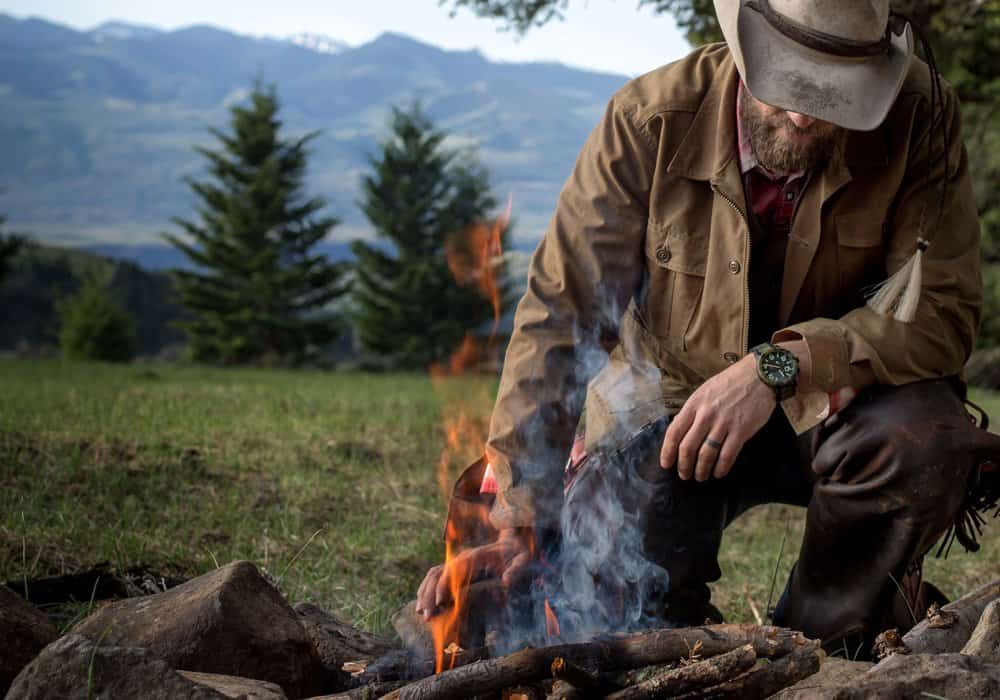
Does knowing how to hunt make you a better outdoorsman? In what ways? Does being a hunter make you a conservationist?
Micah: Hunting places you in a learning environment. It teaches you humility and respect for all things living, and it makes you realize that without the cycle of hunting and harvest, humanity would not survive. I remember the first time I shot a big bull elk with my bow, being so overwhelmed by this warrior, and knowing that his death would bring life to my home. I felt an overwhelming sense of honor as I placed my hand on him and felt him take his last breath. I can confidently say that I have never had that feeling getting a steak from the grocery store.
In your opinion, how could the perception of hunting be improved, and are there any ways that you feel it is misrepresented?
Micah: Hunters are their own worst enemy. There is this current narrative that has mechanized the process and made it solely about killing. “Blood this” and “killer tips” and “rage hunter,” etc…this verbiage glorifies the kill, with no appreciation for the hunt. Better glass, better gear, scent killer… the list goes on. But do they study the animal, its ecosystem and what is required to sustain that animal? My approach? Take the time to learn the animal’s habits, become a student of the environment, and stalk them down. Face the cold, feel the loneliness and isolation as you pursue the animal with relentless desire. But, what do we see instead? We see (some) modern hunters spending tens of thousands of dollars to ride around and shoot animals for an iPhone picture and bragging rights. The connection is lost, and there is no honor in the hunt. The entire concept of modern hunting should remain grounded in the elements of an ancient tradition that has allowed man to evolve – not about killing, but about providing and caring for the ecosystem that sustains the animals we pursue and rely on.
How does hunting and living a life closely tied to wilderness (as a packer and guide) influence the way you see the world?
Micah: Life slows down in the mountains, and your perspective becomes clear and still. As the “noise” of everyday life begins to weaken, space opens up for your thoughts and ideas flourish. You learn patience and to live in the “now,” and that is where I believe ultimate peace comes from.
What’s one moment in nature that you’ll never forget, one that changed you on a cellular level?
Micah: I witnessed a horse getting killed after a “cowboy” felt the need to show off and ride off a very steep hill solely for “cool points.” The results? The horse was impaled. Cool points are all about you, and that is when disaster strikes. We need to do things that matter to us and who we are now or striving to be as people in the future. We cannot let other peoples’ opinions drive us and the actions we take. If we do, then the perceptions of the known and unknown person drives us further away from who we truly are.
On a totally different note, the first time I packed into the Beartooths by myself is an experience that I will never forget. It was a trip that made me look at myself closely and deeply. Being completely alone with my thoughts was unnerving at first, but then I found truth in the silence. After years of conflict and deployments, I began to find the answers to questions I had never known. I stopped running from time, began to grow again, and reconnect. Without places like the Beartooths, I do not think I would be where I am today.
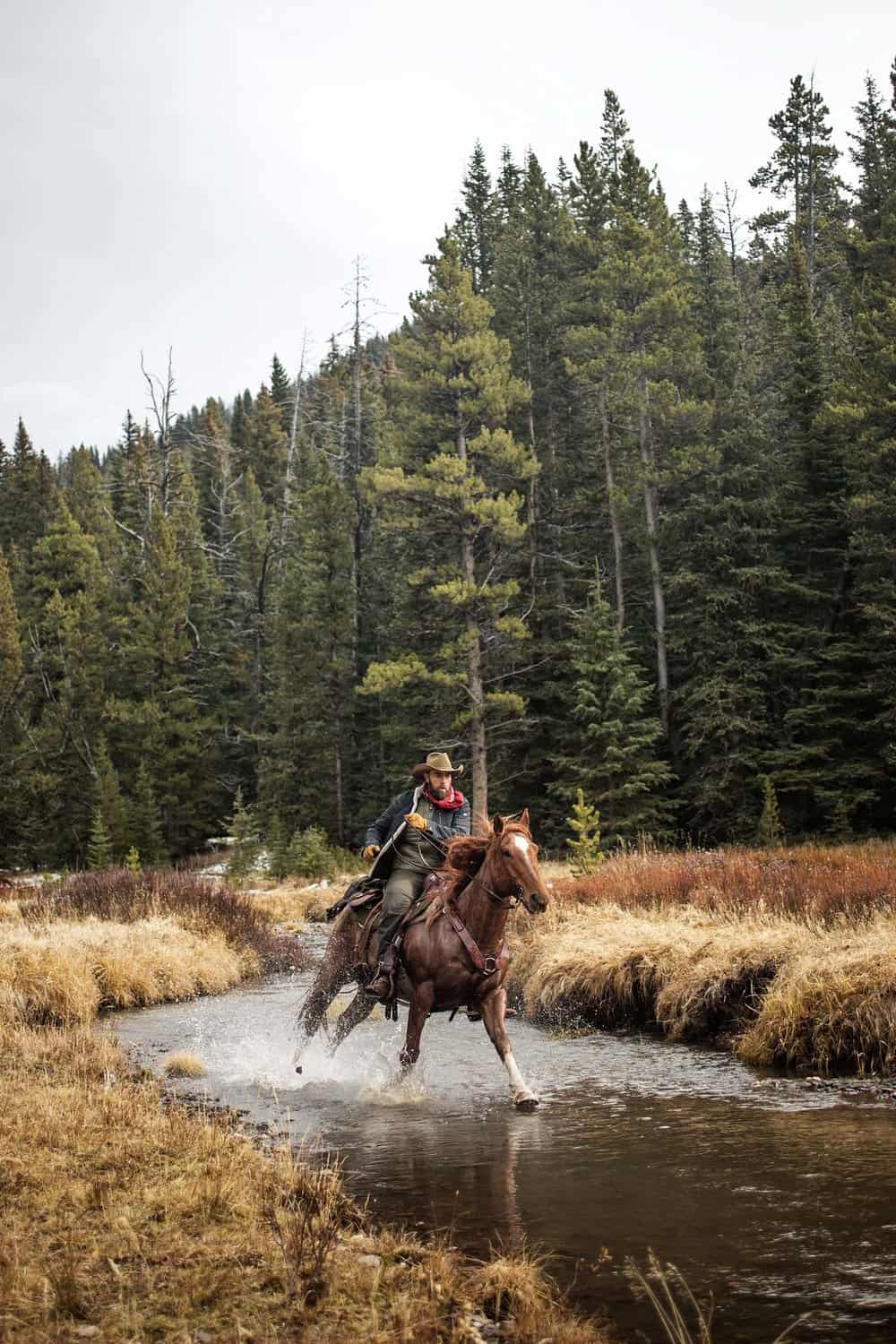
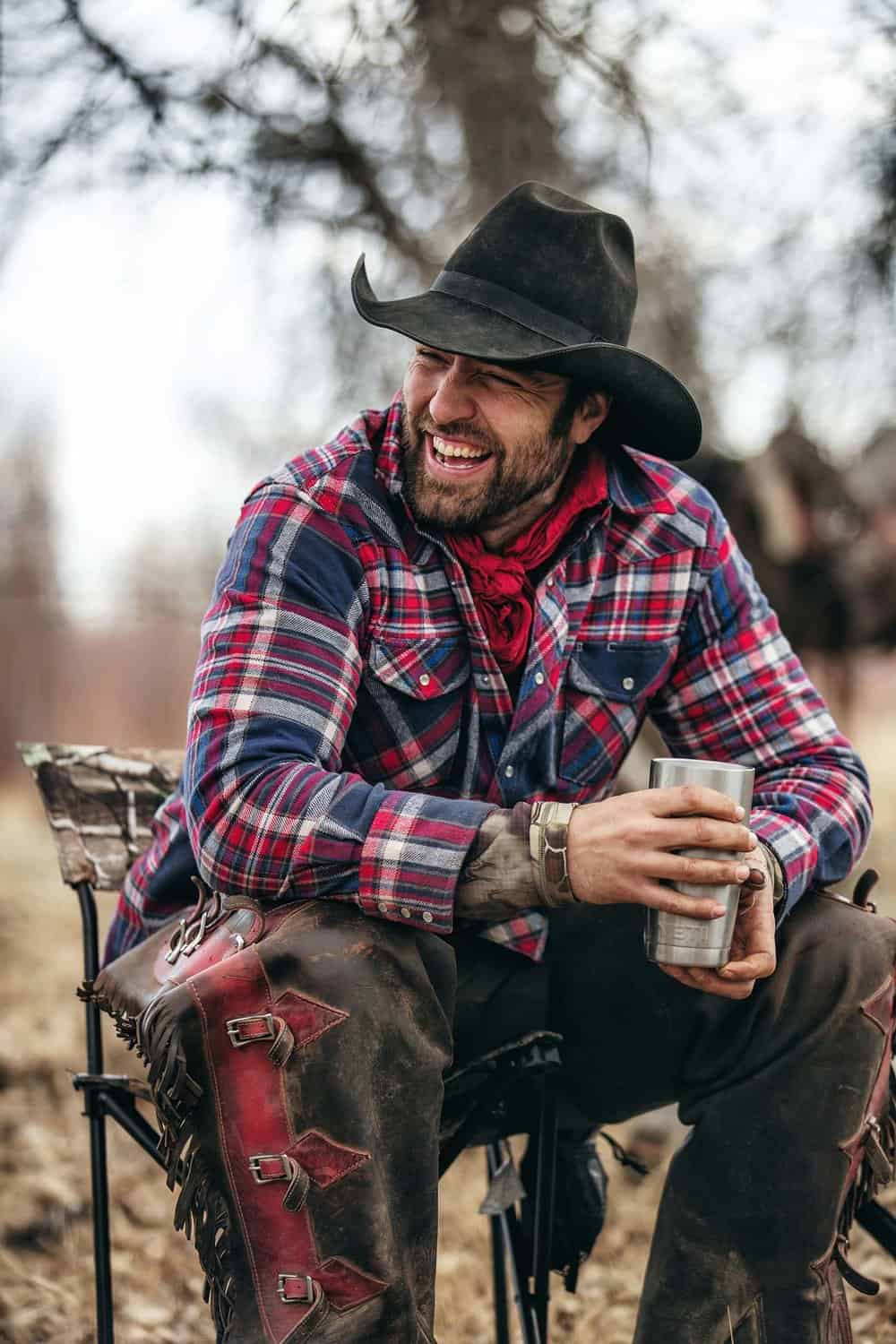
What does it take to be successful as a public land hunter in the American West?
Micah: You have to be in good shape and know how to use the resources in the wilderness to your advantage. It takes time and commitment. You’re not going to just go out and shoot something just like that – you need to dig in for the long haul. Spending the time to learn the landscape, to understand the animal, to think like the animal, and to read the signs that the animal is giving you – those are all essential tools for success.
Do you think public land is one of the greatest gifts America has to offer its people? If so, why?
Micah: By far the greatest gift. No other nation in the world has this much free access. It is our duty to protect it and the resources it contains. We need to be stewards of this gift, because once it’s gone, it’s gone. It’s critical that we see the value in being able to pass it down from generation to generation.
As someone with a background in the military and extensive experience working and living in America’s wildest corners, how do you hope our public lands are managed into the future by our government? What role do hunters have in shaping the future of our public lands?
Micah: I think it’s all about education. Seventy-five percent of the land owned by the public is located in the West. We need to nationally educate people who may not even know that this land exists for them. People cannot fight for what they don’t know they have. Hunters need to get more involved than just focusing on the harvest of an animal. They need to make the case about why hunting is important and pass those lessons on to their families, communities and this nation. They should be advocates for these wild places, not just the species they pursue. There’s an entire ecosystem out there, not just a big bull.
Do you have any books, films, or podcasts you’d recommend to learn more about hunting and conservation?
Micah: My favorite books are The Grass Beyond the Mountains, Give Your Heart to Hawks, Blood and Thunder, The Adventures of the Mountain Men, Lewis & Clark, Empire, Among Comanches, Addicted to Danger, Skeletons on the Sahara, Jedidiah Smith. No podcasts…well, Joe Rogan!
Any closing thoughts? Here’s a chance to speak your peace if you’ve got something else you want to say that we didn’t cover.
Micah: I am blessed to have had the opportunity to fight for this country and the lands that we love so much. We need to make sure we do not let the ambitions of man destroy the majestic beauty that is found outside and all around us. If you call yourself a “hunter,” then hunt — don’t kill. And when you do, show respect and honor for the animals and land that provides us with so much. Pass those lessons down.
More recently, Micah’s leadership and mission has been celebrated through 500 miles, a film that aims to start a new, universally understood conversation around the necessity of struggle, challenge and perseverance as they relate to creating meaning in one’s life. The 500 Miles film tells the story of the un-purposed wild mustang and the un-purposed veteran, following both as they learn to face and navigate challenges, with the ultimate goal of discovering what their greater purpose in life is.
You can learn more about Micah’s work, including the 500 Miles project, at HeroesandHorses.org
Related Stories


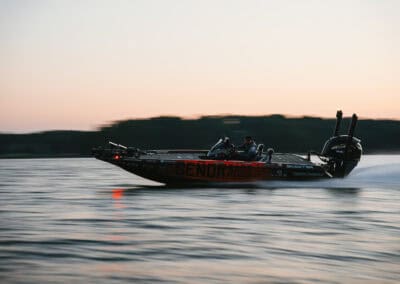
Latest Stories


